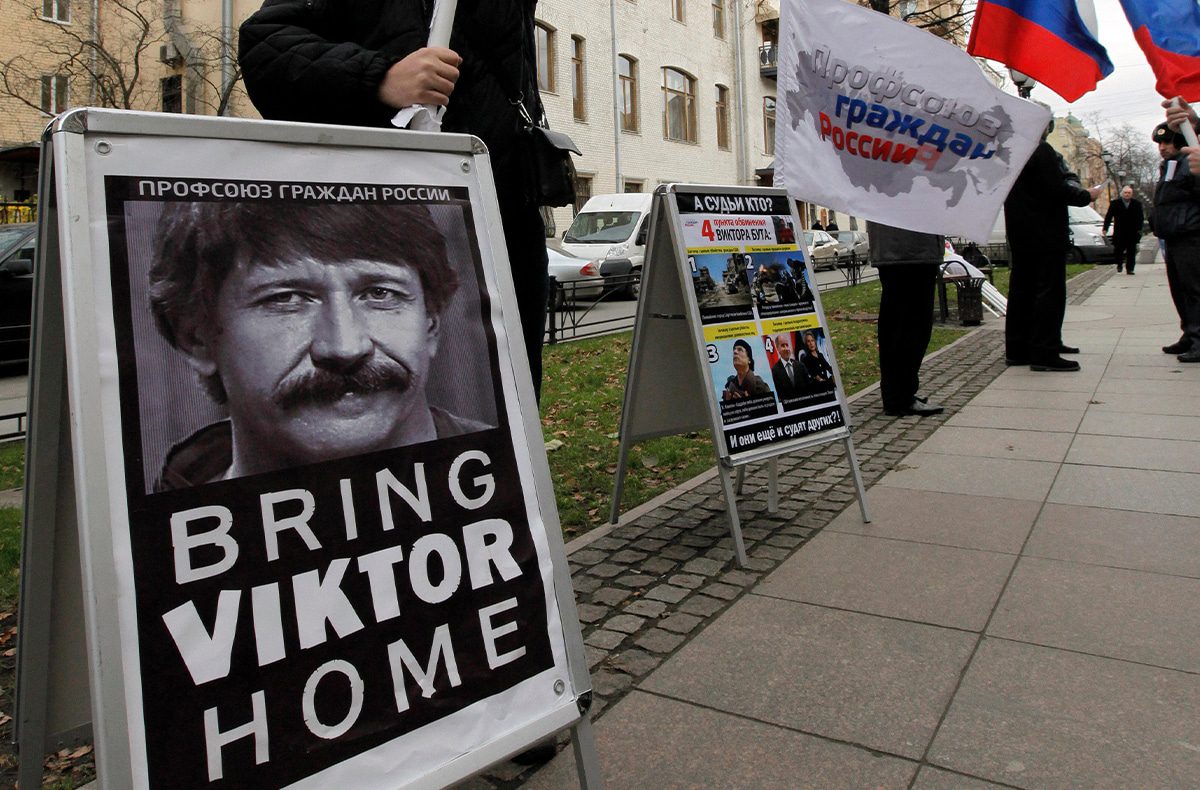
On Wednesday, Antony Blinken announced that the US had made a “substantial offer” to Russia to secure the release of Brittney Griner and Paul Whelan, with CNN reporting sources say the prisoner swap would be for Viktor Bout. Griner is a basketball player who has been detained in Russia since February after 0.702 grams of cannabis oil was found in her vape cartridge at the airport, while Whelan is a former US Marine who is currently serving out a 16-year-sentence in a Russian prison for espionage. But who is Viktor Bout?
Bout, now 55, is known primarily as a very successful Russian arms dealer (although he is believed to have been born in Dushanbe and may be of Ukrainian origin) whose exploits all over the world earned him the nickname “Merchant of Death” and served as the inspiration for the 2005 Nicholas Cage movie Lord of War. He was arrested in a sting operation in Thailand in 2008, charged with conspiring to kill Americans by a Manhattan court in 2011, and is currently serving out his 25-year-sentence in a prison in Illinois.
While I have never met Bout nor any of his family members, I got to know him a little differently: through the lens of a movie camera while working as an intern on the 2014 documentary The Notorious Mr. Bout. Like many Russian men I knew in the 90s, Bout seemed eager to get his hands on a brand-new video camera and shakily film every mundane moment in his personal life, and it was my job to translate and subtitle hundreds of hours of birthday parties and vacations for the film.
He was a smart guy and a master linguist who was reportedly fluent in Russian, Portuguese, English, French, Arabic, Farsi, and—his greatest passion—the “universal” language Esperanto. He loved swimming, and his mustache and then-portly appearance made him look like a cartoon walrus every time he came up for air. He seemed to really love his daughter and his wife, Alla, with whom he shared an unbearably cheesy Russian pop song and who is still fighting for his release.
In short, he came across as your average goofy uncle, who went on long but not unpleasant tangents about Life and Love whenever he had a couple of shots in him. He seemed dependable and kind. It was hard not to like him, or at least view him as a human being.
It’s difficult to reconcile that with the fact that his so-called “business” was reportedly linked to wars in Afghanistan, Angola, Congo, Lebanon, Somalia, Yemen and more. And all I can say in justification is that 90s Russia was a dark place in which everyone needed to do something that was at least a little bit shady in order to survive, and any moral righteousness on that part always seems to come from people who don’t know what it’s like to be hungry.
I’ve also seen articles arguing that exchanging Griner for Bout seems like a fairly uneven swap, which is fair. After all, Griner’s ridiculous “case” revolves around a completely victimless crime, whereas Bout’s does not.
That being said, there are those who have always believed that Bout—like Griner—is a victim to politics.
“It’s increasingly difficult to talk with any degree of clarity about what Viktor Bout is or has done, without being seduced into one of two very simple narratives,” Matt Potter, a journalist familiar with Bout’s case, says in the documentary. “One: Evil, all-powerful super-villain, ‘Merchant of Death’ got his comeuppance. And the other: stooge, victim of a conspiracy. And I think both of those very simplistic ideas do everybody a tremendous disservice, because they allow us to avoid confronting some very tough questions about how the arms trade actually works and who comes out on top when all the sins of the industry are allayed at the doorstep of one man.”
After all, Bout was “caught” during a sting operation in which FBI agents posed as terrorists, and there are many who hold the same notion as his brother, Sergey, who says in the documentary that it’s customary to say whatever you need to say (i.e. “Yea, sure, you want to kill Americans with this rented plane? Whatever”) in order to make the deal. Is it morally bankrupt? Yes. Does it show a fundamental lack of respect for human life in the interest of making a buck? Yes. But is the US still by far the largest arms dealer in the world? Also yes. So is it possible that he was locked up because he was too much of a competitor? Also yes. And who gets to decide when and to whom selling arms is just or unjust?
The only important question is this: When did it become acceptable to us, as a society, to allow any government to use human beings as pawns in geopolitical war games? And, if that is the case, who among us is safe?



